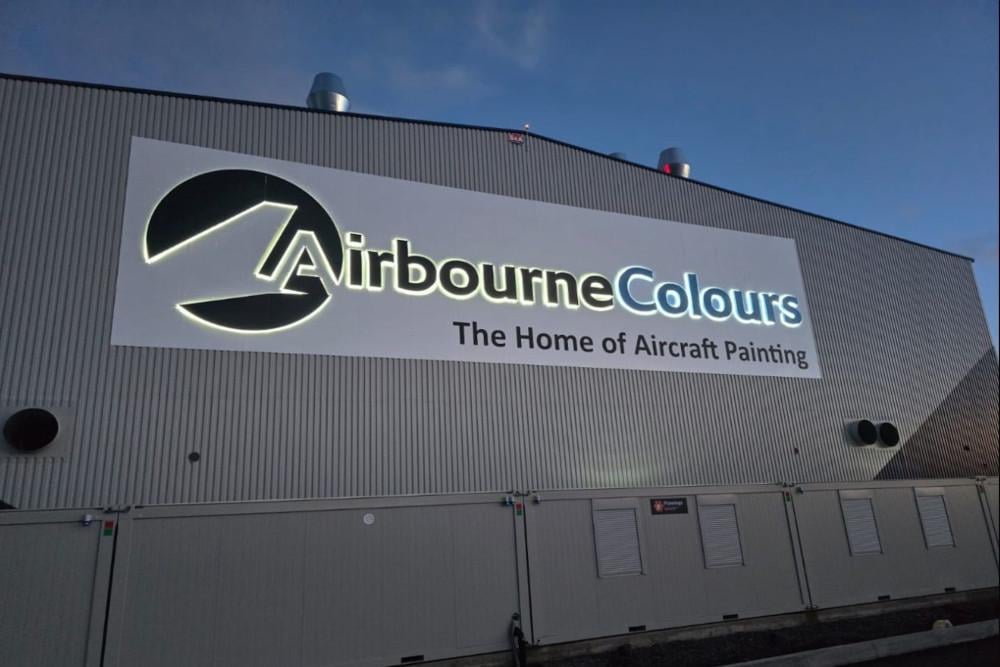
The new aircraft painting facility at Teesside will be Airbourne Colours' third in the UK.
With an aircraft painting specialist set to open a new facility at its site this week, UK-based Teesside International Airport is looking to attract more MRO specialists to operate from the airport long-term as it seeks to build a one-stop shop ecosystem.
The latest incumbent at the publicly owned airport is UK-based aircraft painting specialist Airborne Colours, which will open a new 27,000 ft2 facility later this week. The company confirmed a £6.5 million ($8.1 million) investment at the beginning of this year and upon making the announcement, outlined plans to create 40 new positions at the site.
The Teesside facility will add to Airborne Coulours' existing UK workforce of more than 150 people across sites at East Midlands Airport, where it caters to narrowbody aircraft, and Exeter Airport, where it paints regional aircraft and smaller business jets.
Airborne Colours becomes the second MRO provider to have a presence at Teesside Airport, joining the maintenance division of U.S.-based engine lessor Willis Lease Finance Corp., which operates two bays of base maintenance at Teesside along with aircraft storage and disassembly services. In addition, Willis also operates a fixed-based operation (FBO) jet center, which provides ground-handling services for business, private aviation, military and cargo flights.
Willis has committed further investment to Teesside with plans unveiled last year to build a designated Aviation Village on-site to the tune of £25 million. Long-term, the investment by Willis has the potential to create 250 to 300 jobs, with plans in place for up to five maintenance hangars as well building a new FBO jet center. It also plans to develop a power-to-liquid sustainable aviation fuel (SAF) plant at Teesside, which will eventually produce 20 million litres of SAF annually.
Located near Darlington in the North East region of England, around 30 mi. south of Newcastle, Teesside Airport saw a sharp rise in passengers last year and also reported its first profit in more than a decade. The likes of KLM, Loganair and Ryanair operate commercial flights from the airport, while carriers such as BH Air, Eastern Airways and German carrier TUI Airways run seasonal routes.
Phil Forster, managing director of Teesside International Airport, says it will look to add more passenger routes over the next year but it is also targeting strong MRO opportunities. He cites the Teesside region’s freeport status, enabling it special arrangements for taxation and customs, along with strong regional connectivity as advantageous in helping achieve this.
Forster thinks the benefits of on-site aftermarket activity helps meet projected industry demand and creates skilled jobs while supporting the airport’s long-term financial sustainability.
“It’s a signal of our ambition to be a nationally renowned center for MRO and we are now looking to develop further sites to meet growing demand,” Forster says of Airborne Colours setting up at Teesside. “We want to attract businesses across the MRO sector to develop Teesside as a one-stop shop where airlines can benefit from the full range of maintenance and repair services.”
Forster adds that these include aircraft maintenance and repair, air cargo and aerospace manufacturing facilities which he envisages all working as complementary to one another.





